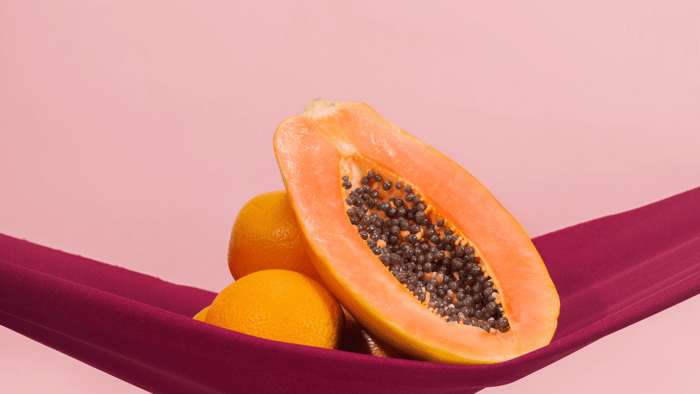If you are like most of us, you probably try to take care of your body. You get fairly regular check ups. You try to eat healthy, drink lots of water, and get some kind of exercise everyday, even if it's only to walk the dog around the block.
But how much do you know about your body’s microbiome?
Micro-what?
You have likely heard of gut bacteria, that there are all these organisms living in your intestines and that there are good and bad types.
Well, apply that concept to your entire body—from your skin to your digestive system.
What is Microbiome?

Your body’s microbiome is an ecosystem of bacteria, fungi, protozoa, and viruses -- both good and bad -- that live on and in you.
While the study of bacteria began with the development of microscopes in the 17th century, the discovery of the human microbiome system is fairly recent and was only really recognized in the late 1990s.
What is Your Microbiome’s Purpose?
Once thought to be only harmful and the source of infectious disease, microorganisms living in and on the body used to be seen as invaders that needed to be eliminated.
But further research showed that only a small percent of the microorganisms in your body are associated with disease.
In fact, the overwhelming majority are actually essential for your body’s ecosystem to function properly.
In other words, maintaining a healthy microbiome is essential for your health.
How does Your Microbiome Work?
If your microbiome is like a solar system of organisms in your body, and the microbiota are the constellations -- particular areas with a concentration of organisms. The one most talked about is the gastrointestinal tract, which houses more than 2,000 species of bacteria.
These bacteria help us digest our food, promote a healthy immune system, protect us from disease, and even produce vitamins like the B vitamins B12, thiamine, riboflavin, and vitamin K, which helps our blood coagulate. In fact, the key enzymes needed to form vitamin B12 are only found in bacteria, not in plants and animals, according to the Harvard School of Public Health.
In a healthy person, our microbiota is in balance. But when something throws off that balance -- like illness, certain diets, or the prolonged use of antibiotics or other bacteria-killing medication -- we become more susceptible to disease.
Certain autoimmune diseases like diabetes, rheumatoid arthritis, muscular dystrophy, multiple sclerosis, and fibromyalgia are associated with dysfunction in the microbiome.
The microbiota of a healthy person protects them from illness-causing organisms that enter the body such as through drinking or eating contaminated water or food.
Your Gut Microbiome
Large families of bacteria live in the human gut and colon. The presence of certain good microbes prevents the overgrowth of harmful bacteria. They do this by competing for nutrients and places to attach themselves in the gut, which is the body’s major site of immune activity and production of antimicrobial proteins.
Microbiota in your large intestine help break down complex carbohydrates like starches and fibers. This process ferments indigestible fibers and creates the production of short chain fatty acids (SCFA), which play an important role in muscle function and may prevent certain chronic disease, cancers and bowel disorders, Harvard Health reports.
Clinical studies show that SCFA can help treat ulcerative colitis, Crohn’s disease, and antibiotic-associated diarrhea, according to the report.
Antibiotics and Your Gut Microbiome

While some bacteria cause diseases such as cancer, diabetes, cardiovascular disease, and obesity, these often occur when your body’s normal microbiome is disrupted. The use of antibiotics is one thing that disrupts the body’s normal microbiome, according to the National Center for Health Research.
Since antibiotics kill bacteria, they kill off some of the good bacteria your body needs to stay healthy. Bad bacteria exist in your body at low levels without making you sick, but when not kept in check by good bacteria, they can multiply and create an environment for disease.
In addition to allowing disease-causing bacteria to grow, killing off good bacteria also throws off the body’s immune system. This can result in something as simple as allergies or could lead to a debilitating autoimmune disease.
Overall, antibiotic use has a negative effect on the gut microbiota, as it reduces the diversity of microorganisms and alters the activity in your gut. This can result in antibiotic-resistant organisms, which can lead to antibiotic-related diarrhea and recurrent infections.
It’s even been shown that early childhood exposure to antibiotics can lead to future gastrointestinal, immune, and neurocognitive conditions.
In other words, without the right balance of bacteria in your body, you could suffer from illness and constant inflammation, which can lead to serious disease and cancers.
Your Skin Microbiome
Another area of your microbiome is your skin. As your body’s largest and most visible organ, it is also the first line of defense against infection, environmental stressors, and loss of nutrients and water.
So, addressing skin health can influence overall well-being, according to board-certified dermatologist Keira Barr, M.D.
Microbiome skincare is ever-evolving, as new research is developed. But some things we do know.
What Happens If Your Skin Microbiome is Out of Balance?

Harsh detergents, soaps, shampoos, and other treatments that contain sulfates irritate the skin and can damage the microbiome. This can weaken the skin barrier and lead to overly sensitive skin.
In fact, over-cleansing and growing up in an overly sterile environment can actually be damaging to your skin microbiome and make you more susceptible to allergies and disease, according to something called the Hygiene Hypothesis.
In other words, playing in the dirt is good for kids -- really! The hypothesis suggests that early exposure to various germs helps strengthen the immune system and contributes to diversity in the body’s microbiome, leading to overall better health and a lower likelihood of developing asthma, allergies, or other ailments.
The overuse of skin disinfectants can throw your skin’s microbiome out of balance by decreasing the bacterial diversity.
Always read the ingredients in any product you put on your skin and don’t overdo your skincare.
How to Encourage a Healthy Microbiome

There are many ways to encourage a healthy microbiome, which is one of the keys to our overall health, as the research continues to show.
Here are some tips for keeping your body’s microbiome diverse and healthy.
Get Outside
We weren’t kidding when we said getting dirty is good for you, and not just for kids. Push your hands into the soil and plant some veggies, dip your feet in a river, take a hike in the mountains. Escape overly chemical environments and immerse yourself in nature. Exposing yourself to microorganisms in the natural world will help increase the diversity of your body’s microbiome and lead to better overall health. Plus, it also promotes peace of mind. Who doesn’t benefit from time spent surrounded by nature?
Move It!
Everyone knows that exercise is good for you both physically and mentally, but did you also know that it contributes to a healthy and diverse microbiome? Plus, it reduces stress. Even just a 30-minute walk a day can help improve your gut health.
Chill Out
Stress is bad for your health, both physical and mental, and can negatively affect your microbiome. Stress can upset the balance in your digestive system.
Get Your Zzzz’s
Studies have shown that erratic sleeping patterns can disrupt your microbiome and possibly lead to inflammatory disease.
Sweat It Out
While exercise is a great way to work up a sweat, infrared sauna bathing has many health benefits. It helps detoxify your body, increases circulation and lymphatic flow, helps improve your sleep quality, and relieves stress and anxiety -- all of which helps keep your microbiome happy. Together, the combination of exercise and sauna can help influence your gut permeability, inflammation, and microbiota.
How To Improve Your Gut Microbiome

The saying “you are what you eat” is as true as it gets. Everything you put in and on your body can affect your microbiome and your overall health. Follow our tips to keep your gut microbiome in healthy working order.
Eat Colorful
Eat a wide variety of fruits and vegetables. According to a study from the American Gut Project, those who ate more than 30 different types of plants per week had a more diverse gut microbiome than those who ate 10 or fewer plants per week.
Low Sugar, High Fiber
Cut down on simple sugars and processed foods. Fast digesting sugars don’t give your microbiota a chance to take a bite out of them! Eating too much processed sugary food can lead to inflammation.
Indulge your sweet tooth with complex sugars that will keep your gut happy like the following:
- Honey
- Dark Chocolate
- Coconut Flour
- Apples
- Berries
- Bananas
- Mango
- Sweet Potatoes
Eat a diet high in fiber. Low fiber can reduce the amount of beneficial microbiota in your body and allow the bad bacteria to grow out of balance.
Cut Back Meat
Studies have shown that vegetarians have healthier microbiomes. A vegetarian’s gut has been shown to have a significantly smaller number of disease-causing bacteria than a meat-eaters.
It's still not 100 percent clear if that is due to the lack of meat in their diet, or the fact that they consume more fiber than the average omnivore.
Discover Probiotics
Foods containing probiotics -- active, live, beneficial bacteria -- can help improve your gut microbiota by increasing the good bacteria your gut and crowding out bad ones.
These include fermented foods like yogurt with live active cultures, kefir, pickled vegetables, apple cider vinegar, tempeh, kombucha, kimchi, miso, unpasteurized sauerkraut, and raw, organic unpasteurized goats’ or sheep's' milk cheeses. We love this recipe for homemade sauerkraut -- perfect for when your stomach is feeling upset.
But keep an eye out for hidden sources of sugar, especially in gut-favorite yogurt.
When you find it necessary to take antibiotics, you can help restore your biome’s balance by taking a probiotic food or supplement, several hours after taking the antibiotic, since the good bacteria in the probiotics can be killed by the antibiotics if taken too close together.
It can take a month or two or even much longer for your gut microbiota to return to normal after even a short course of antibiotics. While using probiotics can help, don’t rely on them completely, and instead, make sure you eat a wide variety of healthy foods high in fiber and plant polyphenols such as fruits, vegetables, legumes, nuts and whole grains.
Sweat Regularly
It is widely known that infrared sauna use has many health benefits, from helping to reduce stress and relax the body, to improved circulation and reduced chronic pain.
Sauna usage has also been shown to have a positive effect on your gut microbiota, according to the study, helping to reduce bad bacteria and increase good bacteria, and short chain fatty acids (SCFA), which support your muscles and are reported to help prevent certain chronic disease, cancers and bowel disorders, like ulcerative colitis, Crohn’s disease according to Harvard Health.
Now that you know all about your body’s amazing microbiome, you have the secret key to unlock the door to overall better health!
Christine Steele is a writer for Be Vivid You




